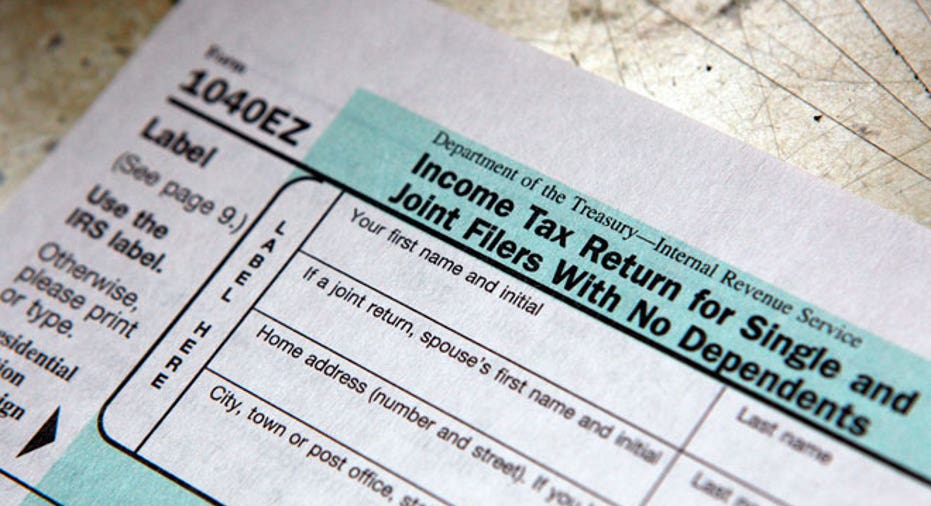5 Ways to Beat the Payroll Tax Increase

Does it seem like you're bringing home less money than you used to? Chances are, you are. With the payroll tax increases that went into effect in January, the paycheck of every working American is a little less than it was last year.
According to the Tax Policy Center, a worker earning a $40,000 median wage will take home $800 less this year than in 2012, a 2.3% reduction. A single high earner making $120,000 will see his or her payroll tax bill jump more than $2,400, a 2.5% cut in take-home pay. That amount could move even higher because there's an extra 0.9% payroll tax for the highest earners, due to the Affordable Care Act.
How are Americans making up for the money they're not getting each month? A new study from Accounting Principals of Jacksonville, Fla., shows that as a result of payroll tax increases, 20% of American workers are going out to bars and restaurants less often, and 19% are eating out for lunch less often.
But, there are plenty of other ways to deal with the shortfall, some of which may be more productive. Here are five ways to make up for your payroll tax increase.
Stop using your credit or debit card
On average, people who use cash rather than plastic spend about 20% less, says Gail Cunningham, spokeswoman for the Washington, D.C.-based National Foundation for Credit Counseling. That's why ditching your credit card or debit card can be a good way to automatically spend less.
Rather than swiping a credit card or debit card when you want to purchase something, carry cash with you at all times, says Mark Mersman, chief marketing officer for USA Financial in Ada, Mich., and co-host of the "USA Financial Headquarters Show." When you pay for everything with cash, it can be more painful to part with your money, or at least make you think twice before making a purchase.
Skip the warranties
Purchase almost anything -- electronics, toys, sports equipment -- and you'll often be asked if you'd like to pay a small additional fee for a product warranty. Most likely, you'd be better off keeping those extra dollars in your pocket than to spend them on warranties you'll likely never need, says Andrew Housser, co-CEO of Freedom Financial Network in San Francisco.
Consumers spend billions on extended warranties every year, Housser says. "But, the odds of needing a protection plan are slim. Warranties make the most sense for high-priced items like a washer and dryer or a plasma television," he says.
"With technological advancements, it is highly likely that the computerized devices that you purchase today will be obsolete by the time you need the warranty. Instead, set aside what you might have spent in a savings account to cover emergencies like appliance repairs down the road," Housser says.
Negotiate household bills
Almost everything is up for negotiation, so why not try to get your personal bills lowered? For instance, telephone and cable companies frequently offer lowball fees to get you to sign up and raise the prices later. Call them and ask to get their current promotional prices, or at least get a less expensive package than the one for which you're currently paying.
Contributors to Ramit Sethi's blog, "I Will Teach You to Be Rich," have reported negotiating savings of as much as $100 per month on cable bills and $20 per month on cellphone bills.
In addition, call your insurance agent to lower insurance premiums or consider switching to a new one to find less expensive coverage. "If you haven't shopped your auto, home or life insurance policies in a couple of years, you may find a significant savings lurking," Mersman says.
'Brown bag' your lunch
According a recent survey by Accounting Principals, 82% of respondents spend more than $21 on coffee on average each week, while 89% spend more than $36 on lunch. But saving money on food and beverages is easy. Start by packing your lunch and bringing a drink from home.
Jeanette Pavini, a consumer savings expert with Coupons.com, compared the prices for homemade sandwiches to the average deli price for three popular sandwiches, and found that you can save $23.75 per week, or $1,235 over the course of a year, by doing just a little shopping and taking five minutes each day to prep your lunch.
In addition to packing your own lunch, rethink your drinks. Rather than stopping for coffee on your way to work, bring some from home. And rather than buying bottled water, drink from the tap.
Reduce taxable income, adjust withholding
There are a few ways to reduce your taxable income that don't require taking a pay cut, says Thomas Duffy, principal planner of Jersey Shore Financial Advisors LLC, in Red Bank, N.J. Start by increasing contributions to any tax-deferred retirement plans you have, such as a 401(k), 403(b) or 457 plan. If your employer offers a health savings account, increase your contributions of pretax dollars.
In addition, adjust withholding on your W-4 form so you pay just as much in income taxes as you owe. While you won't get a large tax refund, you'll have more money in each paycheck.
"Getting a large sum back from the government may seem like a windfall," Housser says. "But, it is really an indication that too much is being withheld from your paycheck. In essence, you have allowed the government to hold on to your money interest-free."
Your goal should be to break even with the Internal Revenue Service. To determine how much you should withhold, use Bankrate's payroll deductions calculator.



















